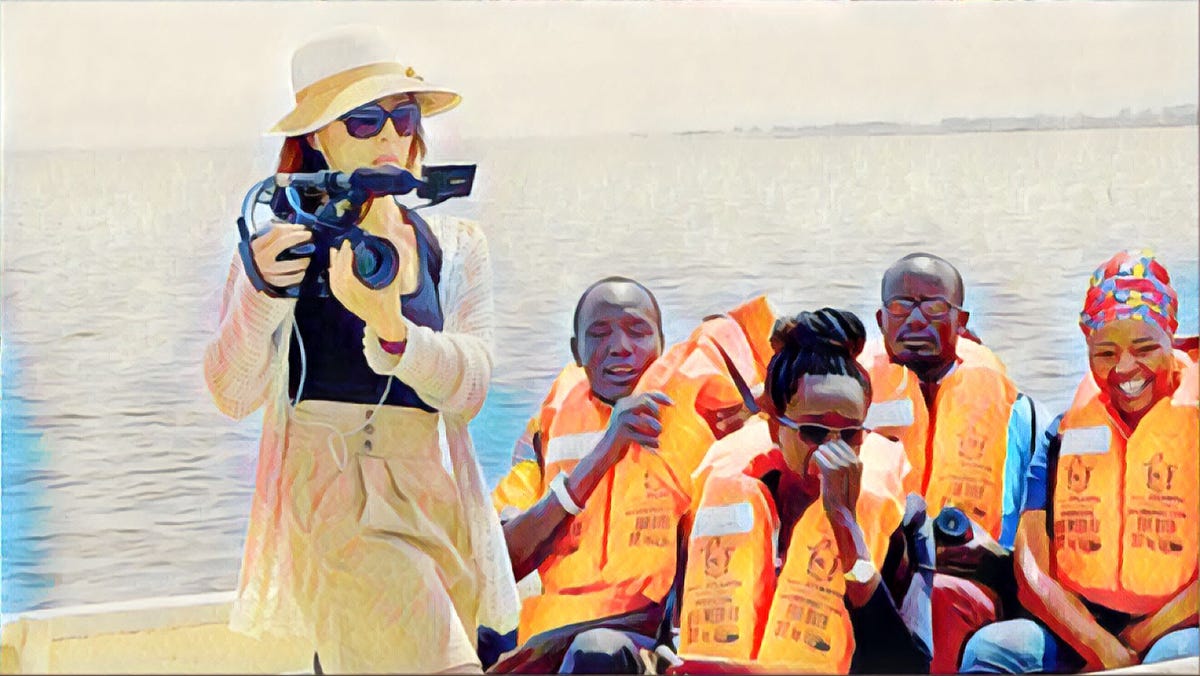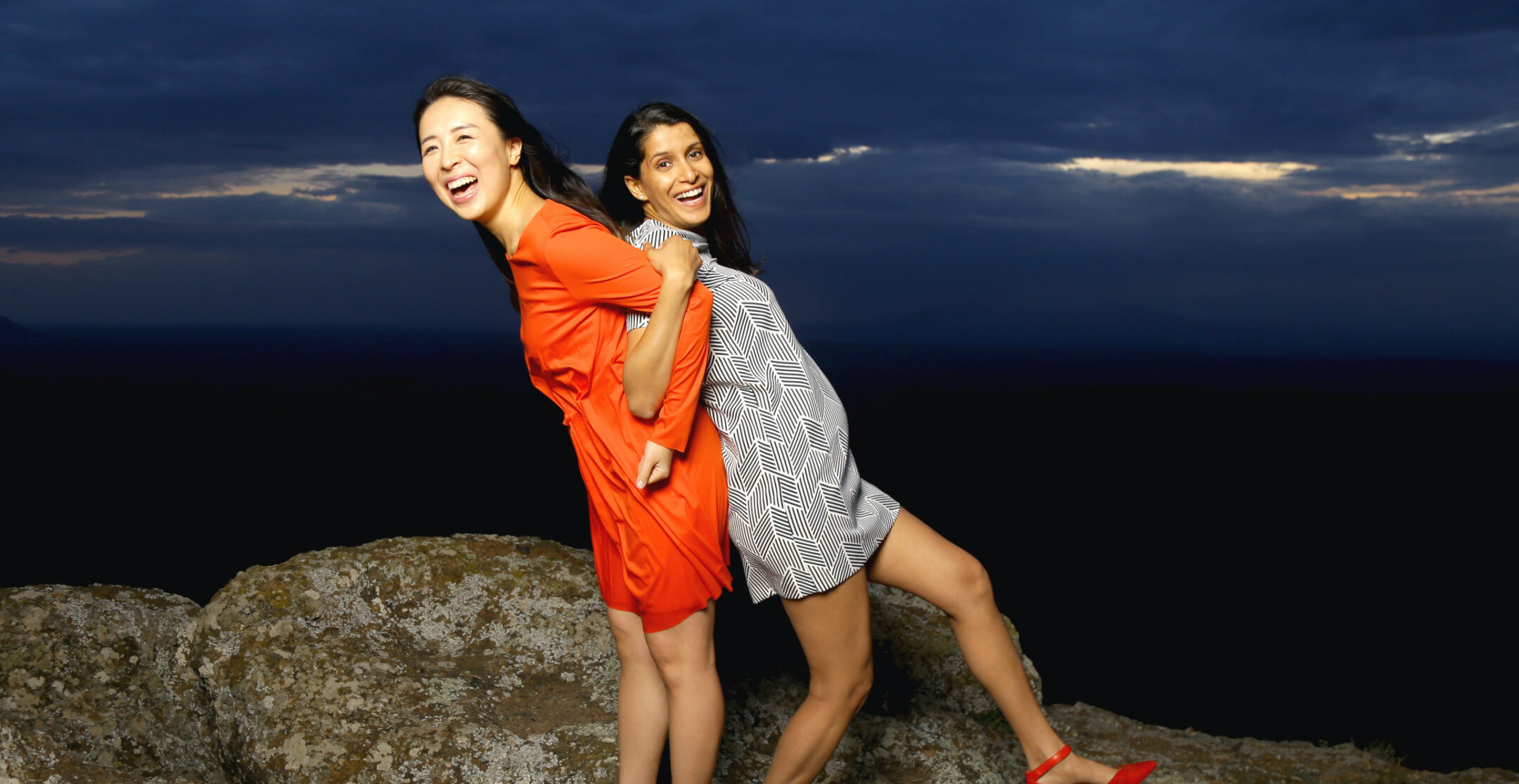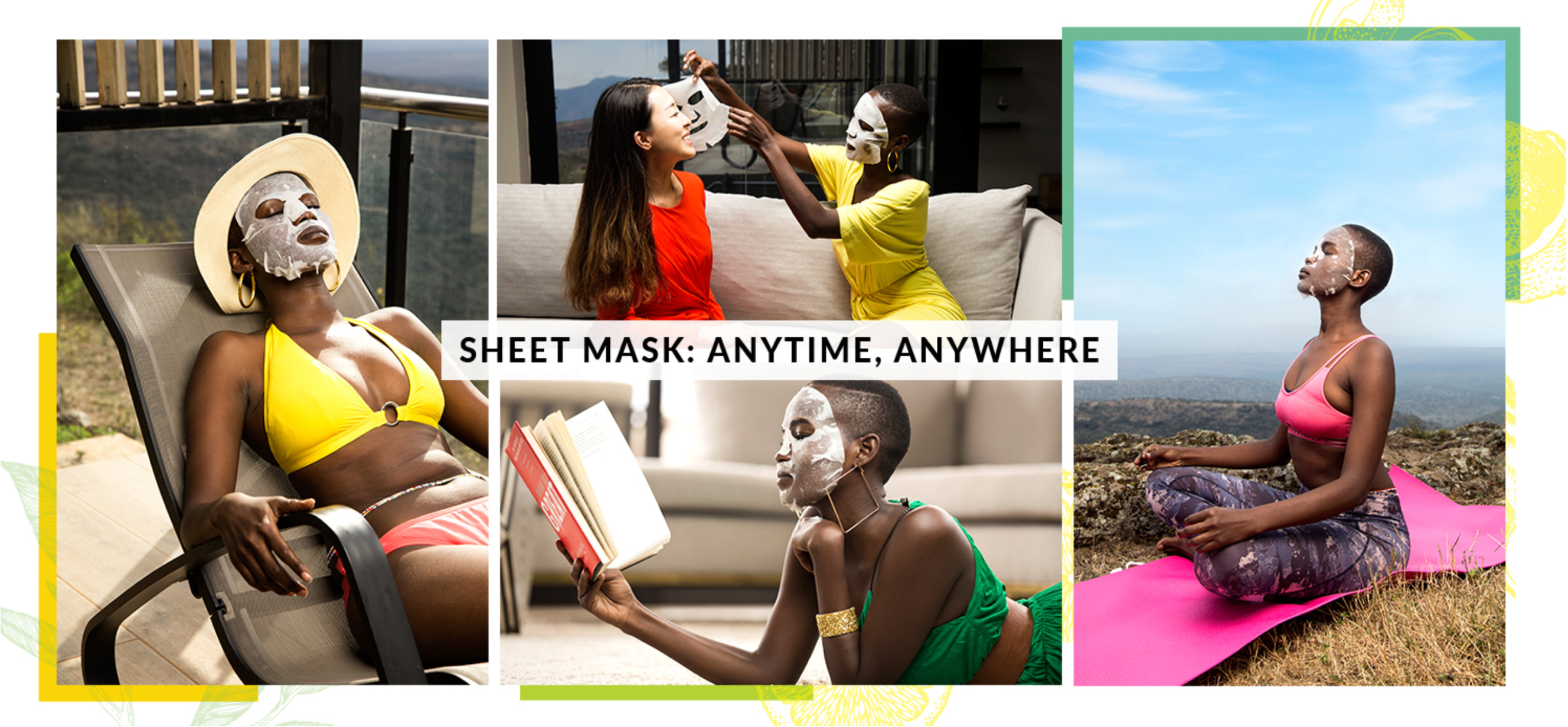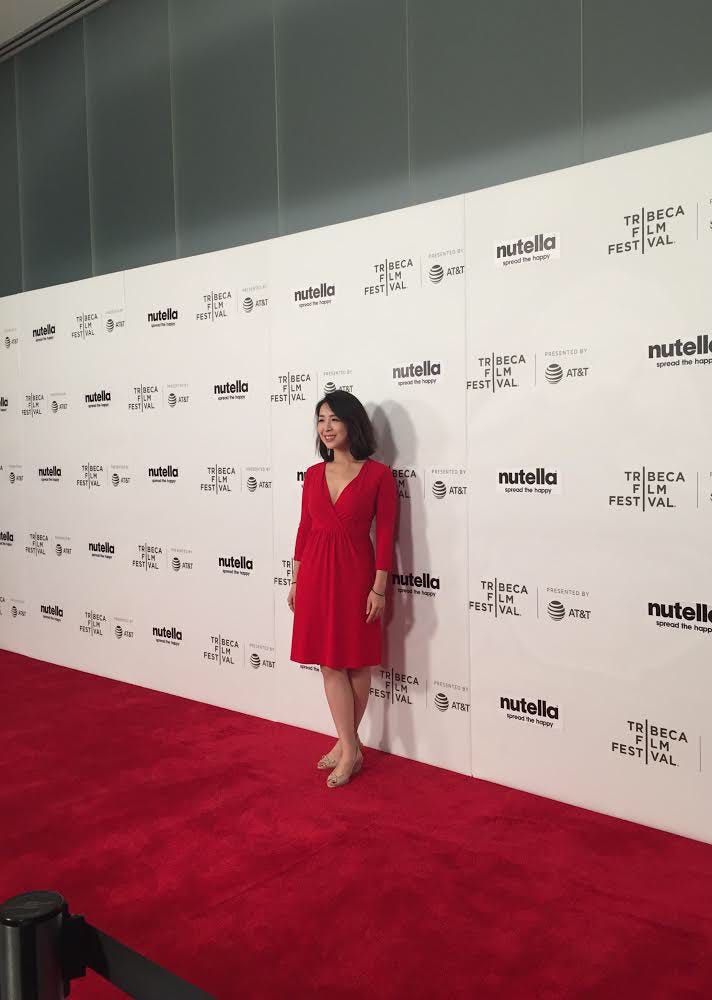Two years ago, one of the subjects in my movie found his life at risk. I wanted to help by getting his story out, and I spent all my savings.

Catherine is a born storyteller, and she took us on an incredible journey into her life. We instantly felt like two characters of an award-winning movie, with her as the director. Catherine has a unique ability to take you on an emotional rollercoaster and make you feel like her lifelong friends after barely an hour of conversation. We believe that vulnerability and sharing the real stories of life is the first step towards something magical. Catherine seems to have understood this precept very early in her life, years before we met.
Catherine is the CEO of Uncover, and together with her co-founder Sneha, they aim to empower women’s self-care by first building Africa’s most trusted skincare brand. The two met during the second cohort of Antler in Nairobi, Kenya, in March of 2020. Catherine comes from a humble beginning, growing up in a modest family in South-Korea. Nevertheless, her tenacious character brought her to Yale for her undergraduate degree and Harvard for graduate school. Then, the World Bank came knocking at her door, and she spent several years solving social issues ranging from child nutrition to agriculture and water sanitation.
Last but not least, she is an award-winning documentary director-producer. You didn’t expect that, did you? Hold onto your seat, as you are about to adventure a story like no other.
But that is only one part of the story.
At Venture Insider, we strive to undress the ups-and-down, the late nights, the early mornings, the failures and the victories.
In a few words; we want to share the real stories.
This interview has been edited and condensed for clarity. Everything in Italic symbolizes the voice of the writer, aka, us at Venture Insider.
...
Introduce yourself — tell us a little bit about your journey?
I am an international development economics researcher turned film director. Currently, I am a women empowerment advocate turned business founder.
What did you always dream of when you were a kid?
I was not one of those assured kids with grand plans of becoming the next president or astronaut. However, my parents taught me to dream big, think for myself and define my own life.
My mum loves adventure and always pushes defined boundaries with her go-getting personality. My father is passionate about social justice and as a student marched in the streets in the fight for democracy. He dedicated his whole life to serve the public. I believe I am the by-product of their unique personalities.
How was it to grow up in Korea when it was still considered a developing country?
I have ingrained in my mind the memory of riding the subway and seeing kids walking the aisle, selling gums for a couple of cents. My own family was humble, and I shared my bed with my brother for some years. I am happy about my childhood, which taught me to never take finite resources for granted.
How was the transition from living in Korea to the US?
We moved to the United States in 1995 because of my dad’s studies. My first memory of the States was that everything was huge and utterly different from anything I had ever seen before. In my teenage years, two challenges affected my family: the Asian financial crisis in 1997, and shortly after, 9/11, which hardened the conditions of our residency and caused us to become illegal aliens. That was a challenging period since I was in high school and preparing to apply to different universities.
After I received legal status, I could travel back to Korea for the first time in a decade, and the country had changed drastically. It was a real economic miracle.
You attended Yale and Harvard. How did you discover and nurture your passions during these years?
I had to work incredibly hard to get into these schools. Fortunately, I received scholarships from both institutions. I feel blessed until this very day for receiving an education of this caliber without putting a dent into my parents’ pockets.
Fun fact: during my freshman year at Yale, I lived in the same dorm as George W. Bush once did. A lot of privileged people study at Yale, and, at times, I felt admittedly indignant about inequality and injustice.
I fell in love with economics, as I believed it would allow me to discover the roots of problems such as poverty and rising inequality. On top of economics, I nurtured a passion for international development. In my second year, I traveled to Nicaragua for a volunteering project building a rural school.
During my time in Nicaragua, I experienced what it means to work in development projects as an outsider. Actually, there are a lot of hidden negative consequences. For example, by helping to build a school ourselves, we possibly took away jobs from the local community. I realized that helping without first observing, listening, and understanding is dangerous.
The ideal scenario is to maintain a blank state of mind, focused on understanding, before undertaking a social project.
What fascinates you about Africa? You were involved very early on with Kenya, where did this come from?
I worked in India before attending Harvard for my graduate degree in public administration. India was a place where the challenges of human rights hit you directly in the face. However, I felt I had to know Africa to be able to contribute most to global development.
More specifically, I wanted to learn how the colonial history, the arbitrary drawing of the borders, and the wars for natural resources influenced the continent. I travelled to Kenya for a Gates Foundation project to empower smallholder coffee farmers, and I quickly fell in love with the country and the people. In 2017, I decided to move there permanently.
Why did you stay in the nonprofit and public sector?
It was not a conscious decision to stay within the nonprofit and public sector. My role as a project evaluation specialist was to understand problems ranging from how to measure people accessing clean drinking water, to why some men were beating their spouse. It was intellectually and emotionally stimulating to work on these projects, and from a human aspect, felt closer to social issues than being in a commercial company.
NGOs provide you with a strong sense of community, support, and help you become a better listener and observer.
What made you become a film director, and what fascinates you about this world?
I believe humans are emotional creatures and decide with their hearts. There is a limit to what statistics and reasonable arguments can convey. Working for big international organizations, I felt it took ages to create impact, and I decided it was worth trying to speed the process by telling stories around the world. I left the World Bank to make documentaries. It was a very un-Korean decision, and I didn’t even tell my father for five years. Catherine finally told her father this year!
I think if I had any skills carried over from a past life, it would be listening. I love to listen to people, and being a documentary director enables me to do that. I am fascinated to then craft stories for a global audience. However, nothing would have happened without the endless support of my filmmaking team who have been there for me since day one. I couldn’t have done it without them!
How did your entrepreneurial journey come along?
During my filmmaking pursuit, I began to question my previous idealistic dismissal of money. Two years ago, one of the subjects in my movie found his life at risk. I wanted to help by getting his story out, and I spent all my savings. Little did I know, that shortly after, I’d have a gun pointed to my head and have everything robbed in the streets of Nairobi.
I had nothing, and for the subsequent twelve months, I stayed at twelve different friends’ places to get a roof above my head. During this time, I realized that I had to start caring for myself, also from a financial perspective. If I was too broke and unstable, I couldn’t help anyone else. Lastly, I realized that for maximal impact, I needed to create an endeavour that would be of social impact, but with revenue-generation in mind, allowing for growth.
Why Antler and how was your experience there?
Antler allowed me to change my life and provided me with the right tools and resources to found a revenue-generating social enterprise. However, the best thing by far was meeting my co-founder Sneha. Together, we worked hard and received funding to make our dream into reality.

We highly respect each other’s journeys, and I find Sneha incredibly self-aware. I advise every entrepreneur to look for self-awareness in a co-founder.
How did the concept behind Uncover come along, and what is the company’s mission?
Every time I went back home to Korea, many of my friends asked me to bring skin-care products back to Kenya. Additionally, Sneha had gotten her face burned after a failed acne cure here. We created a survey, and almost a thousand women voiced their need for better skin-care products and knowledge. The survey validated our own experiences, and we decided to move forward at full steam.

We believe skin-care is all about being natural and uncovering your beautiful face. Our goal is to empower self-care for women and become the most trusted skin-care brand here in Kenya.

Skin is our biggest organ, and every face deserves to be healthy and nurtured, that is the ethos behind Uncover.
If you could change one thing about your journey, something you now have regret for, what would it be?
I really wouldn’t change anything. Not even the fact that I had a gun pointed to my head and was robbed. Quite the contrary, every experience turned me into the person that I am today. However, in terms of hard skills, I wish I had learned fourth and fifth languages during my college days. I have seen the more languages you know, the more you can listen and learn from other people’s lives.
What are the milestones that are still left to be achieved on a personal level?
My goal is to be able to do a whole lot of CSR with Uncover. However, to make that happen, we need to earn a steady stream of revenues. The other day, I was joking with Sneha that we will have “made it” once we can pay for the health insurance costs of our employees. That would make us feel very proud.
On a personal level, I want to create a platform where challenging self-care topics are discussed, such as women’s mental health and body image issues such as eating disorders (something I have experienced myself).
Do you have an inspiring figure?
My mum and dad for the reason I mentioned before.
One book?
Born a Crime by Trevor Noah. It inspired me to start writing my own book!
The one Billion Dollar Question: What is the number one advice you would give to women?
I failed to take care of myself over the last years, and I reached a point where I was going off too far. I don’t want any women to trespass that territory.
Moreover, I believe every woman should do everything to make sure they are physically and mentally healthy. Uncover offers part of the solution to tackle this problem. We are creating unparalleled content platforms online to share scientifically vetted and practical skincare and self-care information for the Kenyan market and beyond.
Something that has helped me drastically is to schedule a time for myself to meditate and remind myself to be present at the moment. To everyone reading this, make sure to take care of yourself!
Our Main Takeaways
- Entrepreneurship allows for maximal impact: creating a company sometimes allows you to go faster, bigger and deeper than the public sector.
- Don’t be afraid to follow your heart. Doing what you like is what matters at the end of the day: Catherine followed her passion for human connection through stories and found in there something that she couldn’t have gotten otherwise.
- Scheduling time to take care of yourself is important. If you fail to do so, from a personal but also financial point of view, you won’t be able to help others as much as you’d have hoped.
Inspiring story Catherine, thank you very much.

...
The last few words
Venture Insider would love to hear your voice.
You can be a part of the change.
We strongly believe that everyone has a story to be shared and that there is invariably something to learn from everyone.
If you are on a mission and want to be heard, get in touch with us to get your story featured to a bigger audience.